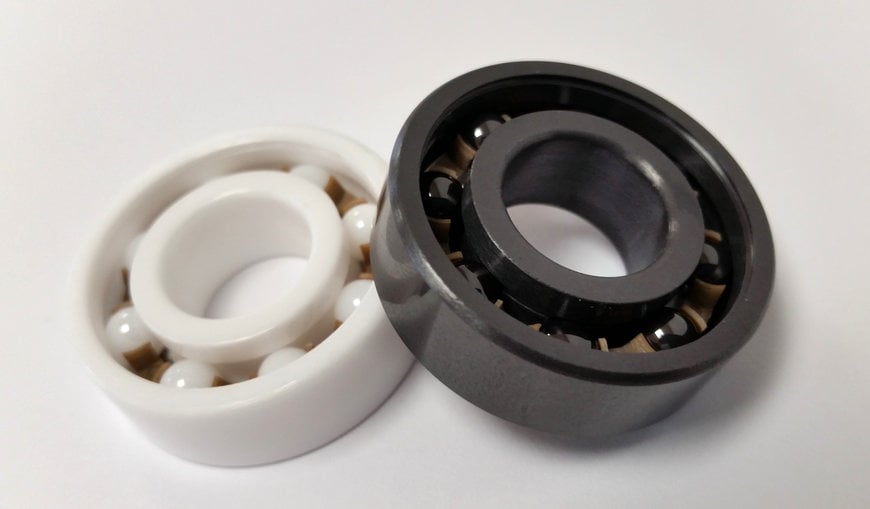www.magazine-industry-usa.com
31
'21
Written on Modified on
What makes a corrosion resistant bearing?
As the name suggests, corrosion-resistant bearings can be used in applications where corrodible materials wouldn’t suffice — think food processing, chemical manufacturing, pharmaceutical production and bearings for marine applications. But, what materials suffice? Chris Johnson, managing director of miniature bearing supplier SMB Bearings, explains.

Stainless steel bearings
Stainless steel is the most obvious choice for corrosion resistance. In fact, bearings made of 316 grade stainless steel are often referred to as ‘marine grade’ bearings for this exact reason. However, 316 is not the only grade that provides resistance to corrosion.
440 grade stainless steel also provides good corrosion resistance in damp environments and these are often used in the food and beverage industry where bearings are frequently washed down. Unlike 316 stainless steel however, 440 grade stainless steel has poor resistance to salt water and many stronger chemicals such as caustic cleaning fluids.
When choosing a stainless-steel bearing, 316 is certainly the most effective grade for corrosion resistance. That said, 316 stainless steel bearings are only effective if temporarily submerged. The material is much less effective when permanently submerged, unless there is a regular high rate flow of water over the bearing.
Plastic bearings
Plastic bearings provide excellent corrosion resistance, and most are also chemically resistant. These are often made from acetal resin (POM) but other materials are available for stronger acids and alkalis such as PEEK, PTFE and PVDF. These plastics also have good resistance to chlorine and are often used in swimming pool equipment. However, these should only be used in low load and low precision applications.
Plastic can even operate effectively in water and salt water. What’s more, unlike stainless steel varieties, the bearings performance is unaffected, even when completely submerged. However, if used with PA66 cages — a type of reinforced nylon — the cage will absorb water after lengthy exposure, causing a loss of tensile strength for the bearing.
But wait, shouldn’t you be able to use all corrosion resistant bearings underwear?
There is a common misconception that all corrosion resistant bearings are suitable for underwater use. However, this is not the case. It is important to consider every aspect of the bearing before declaring it safe to use in wet environments. For plastic bearings, there are several alternative materials for rings, cages and balls, when PA66 cages will not suffice. However, the most appropriate choice would depend on the required application of the bearing.
Ceramic bearings
Full ceramic bearings, made from zirconia or silicon nitride with PEEK cages and seals are not affected by sea water and can therefore be used in marine environments, even when fully submerged. However, most ‘ceramic bearings’ are hybrid bearings — the inner and outer rings of the bearings are made of steel, but the rolling elements of the bearing are ceramic.
When using a hybrid bearing, it is important to remember that the stainless-steel elements will still rust and corrode if used in submerged environments.
Ceramic bearings made from zirconia or silicon nitride can operate when fully submerged and are the best option if looking for a complete ‘underwater bearing’. These bearings are unaffected by seawater and operate seamlessly when permanently underwater. For complete underwater corrosion resistance however, the bearing may require relubrication to a more suitable oil or grease.
Clearly, corrosion resistant is a broad specification when looking for a bearing. Whether the application is for food processing, chemical manufacturing or marine applications, choosing the correct bearing is no easy feat. In fact, the material, cage and lubrication all depends on the exact application of the bearing.
www.smbbearings.com

